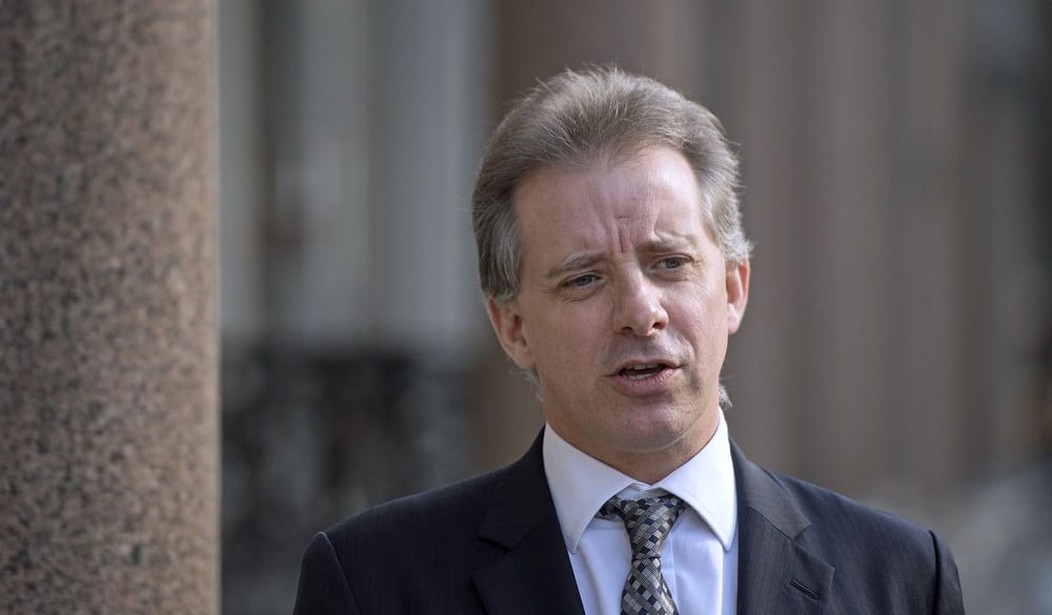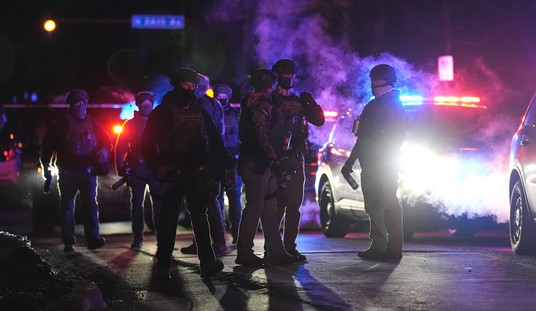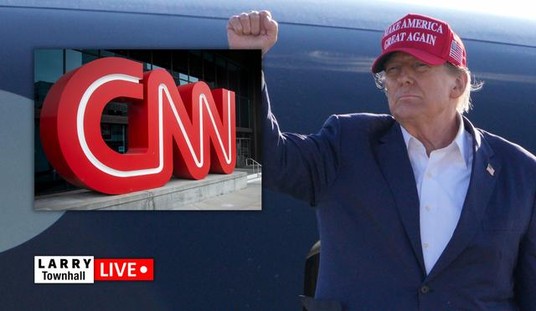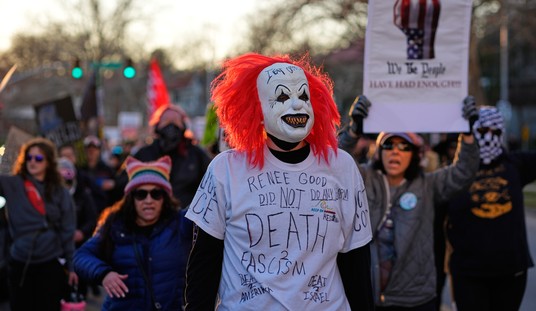Back on April 11, it was revealed that FISA surveillance had been authorized for a member of Donald Trump’s campaign. Carter Page, a guy with lots of consulting arrangements with Russian oil and gas interests, was fingered as the guy who the FBI was worried was an actual conscious agent of Russian intelligence. Given the nature of FISA surveillance, basically anyone Page talked to for a period of months was caught up in the net and had their conversations recorded, and possibly their identities unmasked.
Now CNN is reporting that the mostly discredited “Trump Dossier” that had circulated about last fall was one of the main sources of information that the FBI used to establish that Page had foreign intelligence ties.
The FBI last year used a dossier of allegations of Russian ties to Donald Trump’s campaign as part of the justification to win approval to secretly monitor a Trump associate, according to US officials briefed on the investigation.
The dossier has also been cited by FBI Director James Comey in some of his briefings to members of Congress in recent weeks, as one of the sources of information the bureau has used to bolster its investigation, according to US officials briefed on the probe.This includes approval from the secret court that oversees the Foreign Intelligence Surveillance Act (FISA) to monitor the communications of Carter Page, two of the officials said. Last year, Page was identified by the Trump campaign as an adviser on national security.Officials familiar with the process say even if the application to monitor Page included information from the dossier, it would only be after the FBI had corroborated the information through its own investigation. The officials would not say what or how much was corroborated.
What makes this all so interesting is that Carter Page was a non-entity before arriving in Trump’s circle:
This piqued my interest: I have been a Russia wonk for most of my adult life, I spent years living and reporting from Moscow, still go there regularly for reporting trips, and am in touch with lots of friends there. And yet, despite the tightly knit nature of the expat business community in Russia, no one I spoke to had ever heard of Carter Page.
“What’s this guy’s name?” says one former Western energy CEO who spent years in Russia, and would have overlapped there with Page.
“I had not heard of Carter Page before it came out in the media,” says another prominent Western businessman who has worked in the former Soviet Union for over two decades. “But I am getting a lot of emails from friends asking, ‘Have you heard of this guy?’”
“Strangely, I’ve never heard of Carter Page until this Trump connection,” Bill Browder responded to me in an email. He was one of the biggest Western players in the Russian market until President Vladimir Putin turned on him and Browder became his fierce critic. “It’s odd, because I’ve heard of every other financier who was a player on Moscow at the time.”
…
Enter Carter Page, a 44-year-old Ph.D., and business school graduate who claims an expertise in Russia and energy, yet who, I quickly discovered, was known by neither Russia experts nor energy experts nor Russian energy experts. (“I can poll any number of people involved in energy in Russia about Carter Page and they’ll say, ‘Carter who? You mean Jimmy Carter?’” says one veteran Western investor in Russian energy.) Page also, as I would be surprised to discover, appears largely unknown to Trump’s own campaign.
This revelation creates a much more complicated case for the House and Senate committees investigating real and imagined skulduggery in the 2016 election.
For instance, the dossier was paid for by a political opposition research company for a hit on Trump. So the provenance of the information is not the cleanest. The dossier was shopped around Washington and no campaign chose to use it because they were skittish about its veracity. This is what the New York Times said about its refusal to publish the dossier:
Why can’t I read the memos on your website?
Because the 35 pages of memos prepared as opposition research on Mr. Trump contain detailed claims that neither the intelligence agencies nor The Times has been able to verify, Times editors decided to briefly summarize the claims and not publish the document.
There have been anonymous reports claiming that some of the conversations in the dossier have been confirmed but these were exclusively between foreign nationals. This opens the door to the possibility that the author, Christopher Steele, a guy with a long history with British intelligence, was able to get access to some existing conversations from connections there. As his client was an oppo research firm he probably didn’t imagine that it would end up in the hands of the CIA and FBI. Once that information made its way into the hands of the intelligence community it would serve to vouch for the whole report. But who knows. The FBI does seem to have become enamored of Steele. Not only did they reimburse him for some expenses and consider hiring him to investigate Trump, James Comey became one of the major proponents of the dossier, flogging it about as everyone else in political Washington ran screaming in the other direction.
In fact, that kind of circular validation could explain how the FBI was able to corroborate parts of the report: they were reading their own product that had been shared with/produced by the Brits, given to Steele, retouched and added to his report.
I’m one of a shrinking number of conservatives who sees anything wrong with an administration carrying out surveillance of a political opponent’s campaign. It seems to me that the logical course of action here was for the FBI to approach the Trump campaign and give them an ultimatum: get rid of Page or be prepared for a major leak. But whatever. Trump makes it all right.
It seems now that a line of inquiry that both investigative committees must examine is the provenance of the dossier information. Because without the dossier there is no allegation of Russia helping Trump and without that allegation, there is nothing to investigate.













Join the conversation as a VIP Member